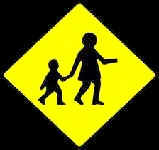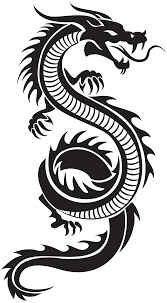| | Leon's Personal Essays
Foreword:
| This page contains the views of Leon, the webmaster. This is not to incite anger or
debate, but rather, just to share my feelings/opinions.
Welcome IELTS Writing & TOEFL
Writing Students! Perhaps you can get some ideas about
how to write an essay for an exam.
|
|
|
************************************************ |
|
Table of Contents:
1. Is America the Greatest Country in the World?
2. "Hamburger--Junk Food?"
3. "Mad Cows or Mad Farmers?
4. "The Road to
Happiness"
5. "A Call for Humane Dog Meat"
6. "What is Love?"
7. "The War on Terrorism"
8. "What's in a Name?"
9. "Likes and Dislikes of Aliens in Asia"
10. "The Human Race"
11. "Utopia"
Please scroll down to see the essays (in order).
|
|
1. Is America the
Greatest Country in the World?
|
| Date: June 27, 2005
Title: "Is America the Greatest Country in the World?"
All people should agree that America is the most powerful nation in the
world, both militarily and economically. Yet, that doesn't
necessarily make America the 'greatest' country in the world.
I am not a Christian in the commonly accepted sense of the word, but I
would like to quote the Nazarene thusly, "He
who is greatest, is the least and servant of all." It is a
paradox, yes; but, it is so true. I would also like to quote Lao Tzu,
the father of Taoism. He wrote: "True power seems weak.
The greatest person seems unsophisticated. The greatest wisdom seems childish."
The older (and consequently more experienced) that I become, the more the words
of Lao Tzu and the Nazarene ring true. Along the same principles, one of the greatest films I have ever seen in
my life is "Little Big Horn" starring the young Dustin Hoffman.
If you've seen the film, you know what I'm talking about. The hero
of the story was called "Little Big Horn". Little Big Horn
was a classic coward and spent most of his
life in servitude, yet he outlived all of his friends and relatives; and,
he lived to tell his story. Whether a true story or not, I know not, but the
message is extremely pertinent.
Dostoyevski's "The Fool" is another classic story that I love.
If
you haven't read it, I highly recommend it. It is a short story and can be
read in a single day. In the story, the "fool" gives all his
money to his elder brother, hence he was labeled "The Fool".
I can't
remember what happened after that exactly, but the main gist of the story
has stayed with me. The gist was that he who was labeled "The
Fool" was actually the wiser of the two. The true fool of the
story was the elder brother.
Yes, America is on top, but is being on top tantamount to being
the greatest? I think not. Not until America becomes the
servant of all, not until American humbles itself as a little child, it
will never become the greatest.
|
2. Hamburger--Junk Food?
Please!
|
| Date: April 21, 2004
Title: "Hamburger--Junk Food? Please!"
Why is a hamburger listed as junk food in most sources? I don't
understand this! I really don't. Merriam-Webster's Online Unabridged Dictionary
defines junk food
thusly: "food high in calories, but low in nutritional value".
Dietitians say that we are supposed to eat many portions of
breads/cereals each day. A hamburger has a bun, which is bread. Dieticians also say that we should eat plenty of
protein sources each day. The hamburger patty is an excellent source
of protein. Furthermore, in my opinion, no hamburger is complete without
tomato, lettuce, onions and pickles. Dietitians say we should eat
lots and lots of fruits and vegetables. Tomatoes, lettuce, onions
and pickles are all vegetables. Every component of a hamburger is HIGH in nutritional value. So,
there is no reason to call it junk food.
I'm sorry, but I'm going to have to vehemently disagree with anyone who
even remotely suggests that a hamburger is junk food. A hamburger,
which has tomato and lettuce, is a well-balanced meal with components from
all four major food groups.
 CAVEAT: CAVEAT:
Fast-food hamburgers are full of so-called "forever chemicals",
especially in the buns. They have anti-fungal chemicals that make
them last pretty much forever. And, they are not healthy. The
veggies--if the fast-food burgers even have veggies--are probably GMO
(AKA: bioengineered), but that's not necessarily bad (I'm not sure if they
are actually bad for you). If I choose to eat at a fast-food burger
joint, I bring my own buns that don't have any forever chemicals in them.
|
|
3. Mad Cows or Mad
Farmers?
|
| Date: February 27, 2004
Title: "Mad Cows or Mad Farmers?"
All right! I've had enough of this mad cow business. When
are the farmers who feed flesh to herbivores going to acquire some common
sense? Which is truly mad, the cows or the farmers who feed them?
That's a rhetorical question. My position obviously is that the
farmers are madder than the cows.
The
disease which has been dubbed "mad cow disease" {scientific
name: bovine (cow) spongiform (in the form of
a sponge) encephalopathy (in brain disease)} doesn't make cows mad, nor people
mad. It eats holes in victims' brains, making them lose memory and
motor control, until they eventually die. And how did this disease
come about? By feeding flesh to an herbivore. HOLY MOTHER OF
GOD! I am no biologist, but I know that you don't do that.
Moreover, all these so-called geniuses at the Food and Drug Administration
(FDA) with Ph.D's in health and biology and medical
science have been approving the feeding of cattle flesh to cattle.
To make matters worse. It is not the flesh of the healthy
cattle that gets ground up and thrown into the feed. It is the
sickly cattle that are ground up and fed to the other cattle. Now if
that isn't the sickest thing I've ever heard in my life, then I don't
recall what is.
WHAT IN THE WORLD IS THE FDA THINKING?!
I mean do they eat the same meat that they approve? I'd like to
know!
What are we going to do next? Start feeding ox manure to our
cattle? Oh, no. Don't tell me... Don't tell
me that they are already doing that. 'Cause I will become a
vegetarian over night.
I think that the farmers should be made to eat the same feed that they
give to their cattle. Maybe then, they'll think twice about grinding
up sickly cattle and feeding it to their cattle.
I call for a world-wife boycott of beef until farmers get their act in
gear, and stop feeding flesh to herbivores.
And here's a wake-up call for you people: it's not the
genetically altered food that will kill you. It is the people who
feed flesh to herbivores that will kill you.
If you eat the meat of a cow with the so-called "mad cow
disease", you will die. It doesn't matter how well the meat is
cooked. You will die. Because, mad cow disease is not caused
by a bacteria or a virus. It is caused by a preon, which is a complex,
indigestible protein. Yes, that's right: a protein. It
is a complex protein that is harmful to all cows and humans (and most
likely many other species as well). The protein replicates itself
once it gets in your body. It starts attracting amino acids and
replicates and attracts and replicates, etc., in effect eating you alive.
It "eats" holes in your brain and possibly other parts of the
body as well.
There is no cure for a preon. The body can't fight a protein. With bacteria, your phagocytes (a kind
of white-blood cell, stored in the lymphatic system) will literally eat
the bacteria. With a virus, the body makes antibodies to
"block" or inhibit the virus from spreading. But the body
has no natural defense against a preon. Why not? Because
herbivores never ate flesh in the past!
In conclusion, the cows aren't mad, because cows wouldn't knowingly eat flesh.
----------------The End--------------------
Post Script
And here is the sickest part of all: Even after the mad cow disease started killing people. The FDA
has continued allowing the feeding of flesh to herbivores. What is
their major malfunction?
How many people have to die before someone does something about this?
I believe that the European Union has disallowed the feeding of flesh
to herbivores and has disallowed the import of meat of herbivores fed on
flesh. Good for them! I wish all countries would do the same.
|
|
4. The Road to Happiness |
Date: December 16, 2003 (Edited
on December 31, 2020)
FOREWORD:
Today is the last day of 2020. Our world has experienced a very
troubling year. Many have gotten sick. Many have died.
Many have lost jobs. Many have suffered natural disasters, which
have destroyed homes and/or lives. And, there seems to be no end in
sight of the suffering. Murders have increased. Suicides have
increased. Unemployment has hit record highs. How are we to
find peace and happiness in this kind of environment? Is it
possible? Yes. I will tell you how.
"The Road to Happiness"
Happiness is something everybody seems to want. In fact, I would go so
far as to write that everybody wants it. I've never met anyone who didn't
want it. I've never even heard of somebody not wanting it. So, for all
intents and purposes, I will make an a priori assumption that everybody
wants it.
The problem is how to acquire it. There are various philosophies on how
to attain happiness. Firstly, I shall discuss the prevailing thoughts out
there, and give my review on them.
1. THE SUFFERING-LEADS-TO-HAPPINESS PHILOSOPHY:
(AKA: The Christian Philosophy)
IN A NUTSHELL:
According to the Christian philosophy, the Road to Happiness is a road of longsuffering,
obedience to God's laws, and avoidance
of many of life's pleasures, for a "higher", eternal happiness
in the life to come.
My Review:
I used to believe this, because I was raised as a Christian.
Then, I was on the fence, because I realized that nobody had died and come
back to tell us what was on the other side. Finally, I became aware
that there are people who've died and seen the other side, then come back
to tell us about it. Their experiences are called Near-death
Experiences or NDEs. The general consensus is that the purpose of
this life is the learn to love. The Nazarene
was not wrong. People's interpretation of his gospel are
wrong. Jesus constantly said that the kingdom of heaven (happiness)
is at hand. That means it is here and now. All we have to do
is "take" it. The Nazarene taught us how to obtain this
heavenly happiness. Most Christians tend not to listen to the
Nazarene, but rather to Tarsusene. If we were to simply stick to the
teacher from Nazareth, we would do well. (I'll explain later...at
the end).
*********
2. THE AVOIDANCE of SUFFERING PHILOSOPHY:
(Hindu-Buddhist Philosophy)
IN A NUTSHELL:
There is no road to happiness mentioned in Buddhism; rather Buddhism is
about the
eradication of suffering, freedom from karma, and attaining a state of
non-change (nirvana). Reaching nirvana is going back to join with
source energy from which we all came. It has been described by some
as complete bliss, but I'm not sure that is what was meant by the
Buddha. If it was, then in a sense, the Buddhist religion is similar
to the Christian one in that true happiness is attainable in this world.
My Review:
The road to non-suffering does not lead to happiness because it entails
the eradication of thoughts, emotions, and desires. This is not happiness.
It is a state of "emptiness", absence of feelings, & absence
of passions. There can be no suffering NOR happiness in such a
state. I want no part of it. I want
to be happy and I want to be happy now. I believe we can be truly
happy. I explain how at the end.
********
3. THE WAY / ROAD TO HAPPINESS: (Taoist Philosophy)
Incidentally, TAO means: "The Way" or "The Road". The question
is: "...the road to what?"
I think it can be the road to anything (anything you want). If
you want money, the TAO can teach you how to get it. If you want
success, the TAO can teach you how to get it. If you want fame, the
TAO can teach you how to get it. AND, if you want happiness, the TAO
can teach you how to get it.
The Taoist teachers have taught that the TAO is found in
non-force... in letting things "unfold", if you will, naturally.
This observation comes from nature. To force the petals of a flower open,
will only result in the death of the flower. Same with forcing the cocoon
open prematurely, and forcing the bird's egg open prematurely. One must
let the flower, the cocoon, and the egg open naturally, when the time is
right, in order to incur desired results. Being overly aggressive, only
servers to push desired results away. When we back off and let things
happen, they will happen as they should.
My Review:
The Taoist Road is the most compelling ROAD TO HAPPINESS that
we have discussed so far, but it is still lacking.
When we try
to force our way into happiness, we lose it. When we try to find our way
to happiness, we likewise lose it. It seems like a paradox, and that is
because it is a paradox. The harder we try to find our way, the more
obscure it becomes. When we stop looking, morning dawns and sheds light
upon the situation, and the way opens up before us. This, seems strange,
at first, but it is true.
Chasing happiness is a wild goose chase, as anyone can tell you. The
only way to gain happiness is by letting it come to you.
Even this approach is lacking. (I'll explain
at later...at the end.)
CONCLUSIONs:
#1: While the TAO is the most compelling approach
of the three mentioned above, all three above are lacking (the first two
lacking much more than the third, of course).
#2: According to the first, we have to wait until
we die to be happy. According to the second, they attempt to
eliminate all suffering. You do this by eliminating your
emotions. If Nirvana is eternal bliss, then true lasting happiness
is not attainable in this world, and therefore, Buddhism is not any more
helpful than the first.
#3: I think we can all agree that we must all
experience suffering in order to experience happiness. But,
suffering should become less and less and happiness grow more and more.
#4: In 2003, my thinking was thusly: If one combines the
TAO with current teachings from
the 'law of attraction', you understand that
while the Taoist idea of non-action is true, there is something that you
have to do first: you have to put your intentions out there into the
cosmos. You have to have pleasant thoughts and emotions, because you
attract what you "put out there". Prayer can be one way of putting one's intentions out there. And
then, you let God (or the Angels) (or the Cosmos) do their thing. Now,
in 2020, my thinking has evolved to incorporate the teachings of the
Nazarene, who taught us that obtaining the kingdom of heaven (happiness)
is at hand, and immediately accessible to anyone, anytime, anywhere.
Teachings of the Nazarene:
- I will open my mouth in parables; I will utter things which have been kept secret from the foundation of the world.
(St. Matthew 13:35)
- Matthew Chapter 13...
[31] Another parable put he forth unto them, saying, The kingdom of heaven is like to a grain of mustard seed, which a man took, and sowed in his field:
[32] Which indeed is the least of all seeds: but when it is grown, it is the greatest among herbs, and becometh a tree, so that the birds of the air come and lodge in the branches thereof.
[33] Another parable spake he unto them; The kingdom of heaven is like unto leaven, which a woman took, and hid in three measures of meal, till the whole was leavened.
To me, this signifies service to animals
and humans alike. Who is the greatest in the kingdom of
heaven? (i.e., Who has the most happiness? ANSWER: the
servant.) (Matthew 23:11.)
- Love one another, as I have loved
you. (St. John 13:34)
- Follow the parable of the "Good
Samaritan". (St. Luke 10)
- Forgive others their trespasses.
(St. Matthew 6 & 18)
Coincidentally, I have learned from a
person who claims to have read ALL of the Buddha's teachings (and I
honestly don't remember who it was or I would tell you), that the Buddha
actually taught that in order to reach nirvana one must forgive everyone
of everything. If nirvana is bliss, as some say, then the Buddha
actually taught the same thing as the Nazarene. You cannot be happy
while harboring a grudge. You cannot!
Personal Note:
I took the horse by the reigns, and headed for an Oasis that I knew of,
but it bucked me off. I landed in a heap of sorrow and pain. But,
I've decided to get back on the horse, and this time, I'll let the horse
take me to the watering hole of its choice. Perhaps it will be better than
the Oasis I was heading for. And, I will lift up anyone who needs my
help along the way.
*****
For related articles, see my HAPPINESS page,
or my TAO page
|
|
5. A Call for Humane Dog
Meat
|
| Date: July 8, 2003
Title: "A Call for Humane Dog Meat"
I love meat, and dog meat is no exception. The problem that I have is
the way that the dog meat is prepared in many countries. Dog meat is
generally prepared by beating the
dog prior to it's slaughter. This is done to induce the release of
adrenaline into the muscles of the dog, which produces a dog meat that
provides the eaters with great stamina.
I refused to eat dog meat after I learned how the meat was prepared.
This, in my opinion, is cruelty to animals. Then, I started
thinking... there must be a way to obtain the same effect in the dog meat,
without being cruel. I have come up with a solution, which I'm sure will
work. If dog ranchers would spray bitch pheromones at the male dogs, just
before killing them, the same effect would be achieved. If not the same,
then I believe a greater effect would be achieved,
and in a much more humane manner. When pheromones are inhaled by males of
the same species, adrenaline and testosterone are both released into the
blood stream and transited to all parts of the body, including the muscles.
Moreover, since most men eat dog meat in order to
increase their sexual stamina, testosterone would be a great help.
I humbly request the help of you readers of this essay to propagate
my idea to the proper agencies.
Sincerely,
Leon. |
|
6. What is Love? |
| Date: June 18, 2003
Title: "What is love?"
I've seen some postings about love, and they shed some light on some
aspects of love, but love seems to mean different things to different
people. Poets use colorful metaphors to describe love. Biologists say love is a chemical reaction in the brain.
Psychologists say love is an emotion, like sadness, or anger, but the
latter two are so fleeting, and it just doesn't seem right that love
should be placed in the same category.
To each of us love means what our culture, our society, and our
families taught us that it means. Therefore, no two people have the
same meaning for love. Some languages have different words for the
different kinds of love. English, unfortunately has only one word.
Korean
has at least two: sarang and jeong. Latin has at least two:
amour and agape. Greek has at least two: eros and
philos. Yet, I have found that if
I ad an adjective to the English word "love," I can come up with
eight different kinds of love. They are:
1. Erotic Love
2. Platonic Love
3. Maniacal Love (infatuation)
4. Pragmatic Love
5. Egoistical Love
6. Altruistic Love
7. Familial Love
8. Philanthropic / Agape Love
When finding a mate, I suggest a holistic approach. I have the view that
the best and most fulfilling love, is the one that incorporates all eight
kinds of love into one. That may seem impossible since 1 & 2 are
opposites, 3 & 4 are opposites, 5 & 6 are opposites. 7 & 8 are
different, but not exactly opposites. But, what I'm advocating here is a
balance. We need to find a balance between the eight kinds of love.
Update: Feb. 2007
I believe that my six-year-old son has come up with the perfect
definition for love. One day, when my wife asked, "What is
love?" I said, "What do mean? Everyone knows what
love is. Even our son knows what love is." Then I turned
to our son and asked, "What is love?" Without hesitation
he replied, "A hug."
That is the most beautiful definition of love that I have ever heard!
|
|
7. The War on Terrorism |
| Date: Jan. 8, 2003
Essay Title: "The War on Terrorism"
Secretary of Defense, Donald Rumsfeld was seen on AFN News recently
saying that the way to fight terrorism is the way the US military is
doing it. That is, by searching for, killing, and incarcerating as many of
the terrorists as possible. I'm sorry, Mr. Secretary of Defense, but I
wholeheartedly disagree.
The first thing one must do in order to conquer an enemy, is understand
the enemy. Does the commander-in-chief of the American military truly
understand his enemy? I don't think so, for if he truly understood his
enemy, he would not be doing what he is doing.
The enemy of America and Israel and all who help Israel is Al Qaeda. Al
Qaeda is not a nation, which can be dominated by traditional war methods.
Al Qaeda is a secret organization, which exists in almost every nation of
the world. We cannot eliminate the enemy, because we don't know who the
enemy is. And the enemy is not limited to a particular race. There are
european caucasion members, and asian caucasion members and negroid
members.
Furthermore, the enemy values rectitude more than life. The Al Qaeda is
an Islamic radical group. In the Islamic religion, there is no end after
death, but a continuation of existence in a metaphysical way. We cannot
fight against the religious conditioning (see B.F. Skinner) that usually
begins from birth and is inculcated so deeply in the mind of the islamic
radical that eradicating it is nearly impossible. Usually religions
inspire people to be nice to each other, and to turn the other cheek, but
religion can also be used to inspire people to kill each other, as we have
seen on September 11th, in America, and also, quite frequently in Israel.
Let's say that America is successful in capturing or killing the
infamous Usama Bin Laden (UBL). Will that end terrorism? No way! Killing
or incarcerating UBL will only make him into a martyr and strengthen the
cause. Another person will lead Al Qaeda in the fight.
I want to ask Donald Rumsfeld and his boss, President George W. Bush,
how can one fight against the convictions of an enemy that cannot be
found, and cannot be identified completely?
I think Jeshua Ben David Bar Joseph (also known as: Jesus, the
Nazarene), said it best: "I say unto you, Love your enemies, bless
them that curse you, do good to them that hate you, and pray for them
which despitefully use you, and persecute you." (Matthew 5:44).
Now, don't get me wrong. We should protect ourselves. But we should not
attack. As we have seen in Israel, evil begets evil. There will be no end
to the terrorist attacks against Israel as long as there are attacks
against Palestine. In fact, the more the attacks against Palestine, the
more the attackes against Israel. Have you not been watching the news, Mr.
President?
The rhetoric that President George W. Bush and Donald Rumsfeld use to
rationalize their actions makes me want to vomit. They say things like
"Go back to work, to the shopping malls, to your normal lives,
because if we let the terrorists terrify us, they have already won."
I'm sorry, Mr. Bush and Mr. Rumsfeld, but I AM terrified. I am afraid to
go back to my own country, because I know in my heart that more attacks on
America are coming. First there was the suicide airplane attacks on the
World Trade Center and the Pentagon. Those people who committed those
crimes can't be punished, because they are already dead. Then there were
the Anthrax attacks through the mail. Those criminals may never get
punished, because we don't know who they are nor where they live. It is
like fighting a ghost. Next there are rumors of poisoning America's water
supply. That would be easy to do. I mean there are no fences around the
lakes and rivers which supply Americans with life-giving water.
I am terrified. And, I will continue to be terrified as long as Bush
wages this war on terrorism. It is suicide to wage such a war. It is only
a matter of time before the next wave of attacks on America come. But,
mark my words, it WILL come.
|
|
8. What is in a Name? |
| Date: Oct. 28, 2002
Title: "What's in a Name?"
If you ask an American, "What does
your name mean?", chances are he/she doesn't have a clue. In the
English-speaking West, names are chosen, not because of meaning, but
because of heritage and/or appeal.
In my case, my first, middle, and last
names are the same as my father's names. It is not uncommon for the
first-born son to carry the name of his father.
My first younger brother's first name was
chosen because of appeal, and his middle name was chosen to honor our
father's best friend. My first younger sister's first name was chosen for
appeal. Her middle name was chosen to honor our mother. My second younger
sister's first name was chosen because of appeal. Her middle name was
chosen to honor both her paternal grandmother and her maternal
grandmother. (It is a combination of both their names into one). My second
younger brother's first and middle names were chosen by his paternal
grandfather for appeal. My last brother's first name was chosen for
appeal. His middle name was chosen to honor his maternal grandfather.
As you can plainly see, there is no regard
for meaning. However, I do personally feel that the meaning of one's name
helps to define that person, if the person knows the meaning. And, meaning
is important, I think, for foreigners who wish to choose English names.
Here is a list of the top ten most common
names in the USA and the meanings (1990):
Male names:
1. Michael [or Mike] (Greek / Hebrew) = One
who is like God
2. Christopher [or Chris] (Greek) =
Christ-bearer
3. Joshua [or Josh] (Hebrew) = Jehovah is
salvation
4. Matthew [or Matt] (Hebrew) = gift of God
5. David [or Dave] (Hebrew) = beloved
6. Daniel [or Danny] (Hebrew) = God is
judge
7. Andrew [or Andy] (Greek) = strong;
manly; brave
8. Joseph [or Joe] (Hebrew) = Jehovah will
add
9. Justin (Latin) = just, fair
10. James [or Jim] (Greek form of Hebrew:
Jacob) = substitute
Female names:
1. Jessica (Hebrew) = wealthy
2. Ashley (English) = ash tree; ash meadow
3. Brittany [or Britaney, or Britney]
(English) = of Britain
4. Amanda (Latin) = loveable
5. Stephanie (Greek) = crowned
6. Jennifer [or Jenny] (Welsh) = white
phantom
7. Samantha [or Sam] (Hebrew) = told by God
8. Sarah (Hebrew) = princess
9. Megan [or Meg] (Irish form of Greek:
Margaret) = pearl
10. Lauren [or Laura] (Latin) = crowned
with laurel
(sources: http://www.charm.net/~shack/name/historic.html,
and: 15,000+ Baby Names by
Bruce Lansky)
|
|
9. The Likes and Dislikes
of Expatriates |
| DATE: Sept. 24, 2002 (updated: Dec. 7, 2003)
Title: "The Likes and Dislikes of Expatriates (Expats)"
Being an expatriate in Asia has been very interesting.
I've lived in the FAR EAST for over 8 years. During
that time, I've had many bad and many good experiences. It would be
impossible to write about all of my experiences here, but I'd like to
share with my readers some of what expats like and dislike.
Expats like it when:
1. Bosses honor their contracts.
2. Bosses communicate (either directly or
indirectly) all the things pertaining to the alien/foreign employees as soon as
possible, such as schedule changes.
3. Non-native English speakers speak polite English.
4. People speak politely to the aliens/foreigners (when they use their
mother tongue).
5. People open a window in the bus or train when it is
crowded AND don't get angry when the alien/foreigner opens a window
for some fresher air.
6. People drink responsibly.
7. Merchants mark the prices on their goods.
8. Merchants give receipts.
9. People are patient with foreigners who try to
speak the lingo of the land.
10. Taxi drivers use the meter and drive
directly to the destination.
Expatriates dislike it when:
1. Men urinate on the sidewalk at night.
2. People spit on the sidewalk. (Please do it in the street, if at
all).
3. People ask personal questions on the bus or
subway.
4. People insult the country of the expat.
5. People blame the country of the alien/foreigner for the economic
problems in the country of residence.
6. People honk loudly and continuously.
7. Merchants play noisy loud-speakers and
drive around in their trucks early in the morning.
That's all for now. I hope this helps create
intercultural understanding between Korea and Westerners.
|
|
10. The Human Race |
| Date: July 12, 2002
Title: "The Human Race"
Race has two meanings: (1) ethnicity, and (2)
competition. I would like to discuss the former. In this world, all humans are
part of the 'human race', as contrasted with the race of another world.
But the human race is composed of hundreds of races, racing for
superiority. The recent World Cup was an example of races racing for
superiority.
An economic race has some merits. It stimulates a good
economy. It provides consumers with choices. And who doesn't like choices?
But, I feel bad for the losing races of the economic race. It seems to be
unfair. I mean are we not all part of the human race? Do we not all
deserve to reap the benefits of economic development? I guess the OECD
(the Organization for Economic Cooperation and Development) is attempting
to make the race a more even race, and that is good, but not all countries
are members of the OECD.
What drives a race to race against other races? Is it
some inferiority complex? Is it some superiority complex? So what if an
American wins a short track race? So what if a Korean wins a short track
race? Does it really matter? We are all human beings. Let us learn to get
along in peace. Let us stop the races. Let there be only one race: the
human race.
|
|
11. Utopia |
| Date: June 27, 2002
Title: "Utopia"
A utopia is a place where there are no 'have-nots'. In a typical society there are the 'haves' (those who have all the necessities for a comfortable life) and the 'have-nots' (those who don't have all the necessities for a comfortable life). There is no utopia that I know of in this world. If I knew of such a place, I would go and live there. There is a popular proverb in English: The grass always looks greener on the other side of the fence. It means that when somebody looks at their neighbors' circumstances, it always appears better than his/her own circumstance.
I read an article in the Korea Times, May 24, 2002. It was entitled "Flying Toward New Dreams." The article is about the Korean families that emigrate for a better life. It makes the interesting point that
despite Korea's economic development, Korean families are continuing to emigrate to other countries. This is interesting because it proves the proverb to be true. No matter how beautiful one's lawn appears to be, the neighbor's lawn always looks greener.
The point of the proverb is to tell people that appearances are more often deceiving than not. I have no statistics, but I'd bet that many of those emigrating Koreans will come back to live in Korea someday. I have a Korean friend who has emigrated to the United Kingdom, and he thinks the United Kingdom is such a boring country, compared to the Republic of Korea (ROK). I'm sure he'll be back someday.
I think it's great to go live and/or work in another country for a while, but I wouldn't recommend burning any bridges to one's home country. Then again, as long as one has family remaining in one's home country, there will always be a way back.
In English, there is another maxim: "There's no place like home." It seems true for most people. No matter how much fun, excitement, and/or adventure one has in a foreign country, it can't compare to home. Many songs have been written about nostalgia. One such song is entitled, "Country Road," sung by John Denver. The lyrics are as follows:
"Country road, take me home to the place I belong, West Virginia. Mountain Mama, take me home, country road."
All I'm saying is think twice before emigrating. Make sure it is the best thing for you to do. And, if you were to do your research before emigrating, it would good.
|
|
************************************************ |
|
| |

English |
|

Spanish
|

Korean |

Mongolian |

Chinese |
|

Parents of
Homeschool
|
|

Halloween
|
|

Thanksgiving
|
|

Winter Solstice
|
|

Christmas
|
|

New Years
|
|

Chinese Lunar
New Year
|
|

Valentine's
|
|

|
|

Easter
|
|

All About
Dr. Seuss
|
|

Roald Dahl
|
|

Prepper's
Pen |
|

Ways to
Help
Leon's Planet
|
|